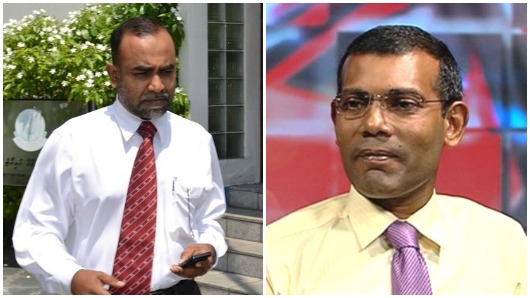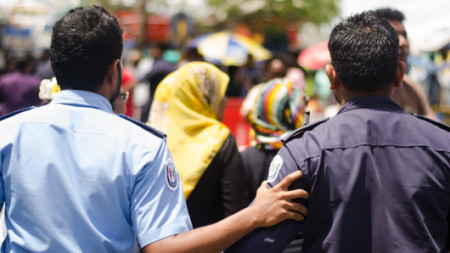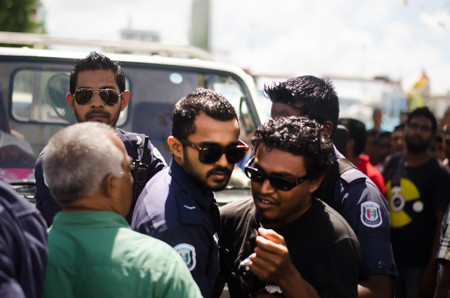Chief judge Abdulla Mohamed has praised judges and staff at the criminal court for the swift conclusion of former president Mohamed Nasheed’s terrorism trial which related to the judge’s arrest in 2012.
The criminal court handed Nasheed a 13-year jail term, sparking international outrage and daily protests across the country.
“The Maldivian military was brought to alert, tents set up at the justice building, scan machines were kept, and the whole country was brought to alert,” Judge Abdulla was quoted as saying by local media.
“A three-judge panel was formed, and a verdict was delivered in 19 days by criminal court judges and staff in a case that couldn’t be concluded in three years,” the chief judge said at a function held last night to mark the court’s anniversary.
Nasheed’s rushed trial was widely criticised by foreign governments, the UN, and Amnesty International for its apparent lack of due process.
Judge Abdulla meanwhile said criminal court judges and staff were awake at night and during weekends while the rest of the judiciary was asleep.
The court proved that the “judiciary is awake” after “matters reached the state where some people believed the judiciary was incapable.”
In addition to Nasheed, his defence minister Tholhath Ibrahim Kaleyfaanu, then-chief of defence forces Moosa Ali Jaleel, then-Malé Area Commander Brigadier General Ibrahim Mohamed Didi, and ex-colonel Mohamed Ziyad were charged with terrorism over the judge’s arrest.
Tholhath was found guilty and sentenced to 10 years in prison.
Nasheed has meanwhile accused Judge Abdulla of involvement in a “contract killing,” and said he had blocked an investigation into his misconduct by the judicial watchdog, and obstructed the police from carrying out their duties.
Judge Abdulla last night also said unlawful arrests by the state have not come to an end, despite six years passing after the adoption of the 2008 constitution.
Seven cases of unlawful detention were submitted to the court last year, he said.
Judge Abdulla said last year’s cases of unlawful arrest included four expatriates suing the immigration department, and one expatriate suing the police. In addition, three Maldivians sued police and the correctional services.
He also referred to the arrest of then-MP Abdulla Yameen and MP Gasim Ibrahim in 2010.
“There’s no doubt that these matters will become a lesson in Maldivian history,” judge Abdulla reportedly said.
He called for more benefits and additional security to criminal court judges.
Lack of space and facilities at the court posed difficulties in providing lawyers access to their clients and the ability to study case documents, the chief judge said.


